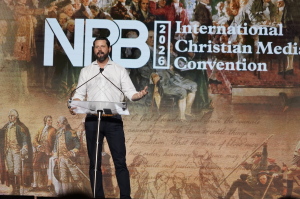Western individualism, independence, prosocialism traced back to Church’s ban on incest: study

The tendency for people in societies classified as western, educated, industrialized, rich, and democratic — WEIRD — to be more individualistic, independent, impersonally prosocial and less conforming has been traced to a ban by the medieval Western Church on incest, according to a recent study.
The study, "The Church, intensive kinship, and global psychological variation," by researchers Jonathan F. Schulz, Duman Bahrami-Rad, Jonathan P. Beauchamp and Joseph Henrich, was published in the journal Science on Nov. 8.
Previous studies have long noted that WEIRD people are consistent psychological outliers compared to the other 85 percent of the world’s population. On psychological tests, people from the West were also found to be more analytical while the vast majority of people around the world think more intuitively in a way psychologists describe as “holistic thought.”
A few years ago as well, Thomas Talhelm, associate professor of behavioral science at The University of Chicago Booth School of Business, Thomas Cooley professor of ethical leadership at New York University Jonathan Haidt and a team of other researchers also found in another study that Liberals Think More Analytically (More “WEIRD”) Than Conservatives.
“In five studies with more than 5,000 participants, we found that liberals think more analytically (an element of WEIRD thought) than moderates and conservatives. Study 3 replicates this finding in the very different political culture of China, although it held only for people in more modernized urban centers,” the researchers said. “These results suggest that liberals and conservatives in the same country think as if they were from different cultures. Studies 4 to 5 show that briefly training people to think analytically causes them to form more liberal opinions, whereas training them to think holistically causes shifts to more conservative opinions.”
In "The Church, intensive kinship, and global psychological variation," researchers argue that the Western Church’s family policies that disrupted kin-based institutions were a key factor in the development of WEIRD psychology.
“Beginning in Late Antiquity, the branch of Christianity that eventually evolved into the Roman Catholic Church—hereafter, the Western Church or simply the Church—systematically undermined Europe’s intensive kin-based institutions through a combination of religious prohibitions and prescriptions,” the researchers wrote.
“Prior to the Church’s efforts, the kin-based institutions of most European populations looked much like other agricultural societies and included patrilineal clans, kindreds, cousin marriage, polygyny, ancestor worship, and corporate ownership,” they explained.
While the branch of Christianity that would also eventually evolve into the Eastern Church also adopted some of the same prohibitions of the Western Church, they did not endorse the same taboos on cousin marriage and were slow to adopt and enforce many of the policies in what the researchers called the Western Church’s Marriage and Family Program.
The policies by the Western Church “began with targeted bans on certain marriage practices used to sustain alliances between families (e.g., levirate marriage); however, by the Early Middle Ages, the Church had become obsessed with incest and began to expand the circle of forbidden relatives, eventually including not only distant cousins but also step-relatives, in-laws, and spiritual kin. Early in the second millennium, the ban was stretched to encompass sixth cousins, including all affines.”
As the Western Church cracked down on kinship marriages, it also began promoting “by choice” marriages, which usually required newly married couples to set up independent households. Legal adoption, remarriage, and all forms of polygamous marriage, as well as concubinage were also eliminated by the church.
As a result of these policies, by around 1500 CE, and earlier in some regions: “Much of Europe was characterized by a virtually unique configuration of weak (nonintensive) kinship marked by monogamous nuclear households, bilateral descent, late marriage, and neolocal residence.”
Intensive kinship norms, researchers said, reward “greater conformity, obedience, and in-group loyalty while discouraging individualism, independence, and impersonal motivations for fairness and cooperation.”



























